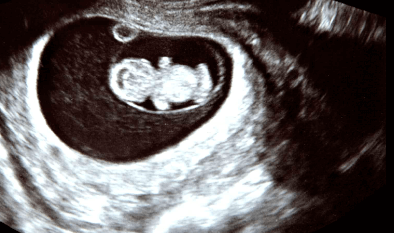What to Expect During an Ultrasound at 9 Weeks Pregnant

Congratulations! You’re now 9 weeks pregnant, and you’ve taken the first steps towards bringing a new life into this world. One of the most exciting moments during pregnancy is getting an ultrasound scan. Not only does it allow you to see your baby for the first time, but it also gives valuable insight into their development. In this blog post, we’ll walk you through what to expect during your ultrasound at 9 weeks pregnant – from how to prepare to what happens after – so that you can feel comfortable and confident throughout the process. So sit back, relax, and let’s dive in!
What to Expect During the Ultrasound
During your ultrasound at 9 weeks pregnant, you can expect a few things to happen. First, your technician will ask you to lie down on an exam table and expose your belly. They’ll then apply a warm gel to the area, which helps transmit sound waves from the transducer (a small handheld device) into your uterus.
The technician will move the transducer back and forth over your belly as they examine different parts of your reproductive system. You may feel some pressure or discomfort as they do this, but it shouldn’t hurt.
During the scan, you’ll be able to see images of your baby on a monitor – though keep in mind that at 9 weeks pregnant, they’re still very tiny! Your technician will point out various features like their head, arms and legs.
They might also use Doppler technology to listen for your baby’s heartbeat – which usually sounds like a fast drumbeat.
While there might be some minor discomfort during the ultrasound itself; it should be an exciting experience for both you and anyone else who gets to witness it with you!
What to Expect After the Ultrasound
After the ultrasound at 9 weeks, you may be feeling a mix of emotions. It’s normal to feel excited and relieved to see your baby on the screen, but also anxious about what comes next.
One thing to expect after the ultrasound is continued prenatal care with your healthcare provider. They will review the results of the ultrasound with you and discuss any concerns or questions you may have. They may also schedule additional ultrasounds or tests if necessary.
It’s important to continue taking care of yourself during this time as well. This includes eating a healthy diet, staying active, and getting enough rest. You may also want to start thinking about registering for childbirth classes and preparing for labor and delivery.
Depending on how early in your pregnancy the ultrasound was performed, you may not be able to determine the gender of your baby just yet. Don’t worry though – there will be plenty of opportunities later on in your pregnancy to find out if you’re having a boy or girl!
After an ultrasound at 9 weeks pregnant, it’s important to stay positive and focused on providing a healthy environment for your growing baby.
What to Expect During Labor
During labor, your body will go through a series of changes and contractions as it prepares to deliver your baby. The process can be both exciting and nerve-wracking, but knowing what to expect can help ease any anxieties you may have.
In the early stages of labor, you may experience mild contractions that gradually become stronger and more frequent. It’s important to stay hydrated and try to rest as much as possible during this time.
As labor progresses, you may feel pressure in your lower back or pelvis as your baby moves down the birth canal. This is normal and typically means that your cervix is dilating.
Once you reach the pushing stage of labor, it’s time for active participation. You’ll work with your healthcare provider to push in timed intervals while they monitor the progress of delivery.
After all the hard work, you’ll be able to hold your newborn baby in your arms! Remember that every woman experiences labor differently, so don’t hesitate to communicate with your healthcare provider about any concerns or questions you may have leading up to delivery day.
What to Expect After Labor
After labor, it is important to take care of yourself while also caring for your newborn. You may experience physical and emotional changes during this time, so it is essential to have a support system in place.
Physically, you may experience postpartum bleeding and discomfort as your body adapts after delivery. Emotionally, you may feel overwhelmed, exhausted or even suffer from the baby blues. It’s crucial to talk to your healthcare provider if these feelings persist.
During this time, prioritize rest and accept help from loved ones when offered. Focus on bonding with your new arrival and building a routine that works for both you and your baby.
Getting an ultrasound at 9 weeks pregnant can be an exciting but nerve-wracking experience for any expectant mother. Knowing what to expect during the procedure itself – as well as before and after – can help alleviate some of those nerves. Remember that each pregnancy journey is unique so don’t hesitate to ask questions along the way!




